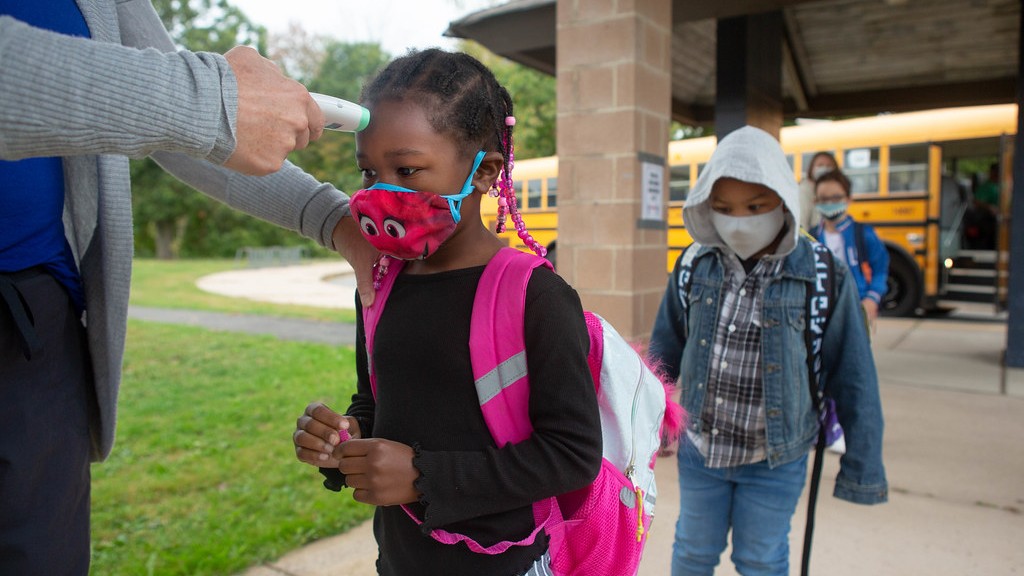State Bans School COVID Vaccine Requirements And Mask Mandates For Schools
One state has passed two Coronavirus bills that will ban school districts from imposing mask mandates or COVID vaccine requirements.

The COVID-19 pandemic proved to be a turning point for many. For some, it was a time to mask-up and stay safe. For others, it was a time to reassess government control and the necessity for medical choice protections. Because of the varying practices and outcomes of each area’s handling of the COVID-19 virus, Arizona’s Governor Doug Ducey has signed two important Coronavirus bills which will protect students’ individual medical rights in the state’s schools.
Governor Ducey’s coronavirus bills will prevent schools from requiring masks or vaccines for entry, participation, or employment purposes. The latter is a measure set in place to specifically prevent public schools from adding the COVID-19 shot to its list of common vaccine requirements. The validity of COVID vaccine needs in schools has been raised, being that schools have reopened while COVID-19 cases and deaths have been on the decline for months and have not reached the height seen in late 2020/early 2021 despite mandates being removed. These Arizona bills are being considered a win by parents who wish to support the Arizona school system without having to surrender their children’s rights.
Leading up to these coronavirus bills, oftentimes since the start of the 2020 shut-down, the CDC, the FDA, the WHO, and many medical professionals have offered conflicting advice and treatments. Whereas Dr. Fauci initially told Americans not to worry about masking, that advice was quickly changed and expanded upon until the practice of double and even triple masking was discussed. Public schools and many private schools instated mask mandates and have been considering adding the COVID-19 vaccine to their list of required shots for enrollment despite concerns over vaccine side effects.
These coronavirus bills also come at a time when the World Health Organization (WHO) is attempting to form a global pandemic alliance that would operate under a pandemic treaty. It utilizes an open letter signed by 25 global leaders as a declaration of action in light of the COVID-19 push for more vaccines and universal equity. The main goal in the letter is listed to create an “all-of-government and all-of-society approach,” to future pandemics and other health concerns — meaning that everyone would have to comply.
There is no mention of vaccine side effects, allergic reactions, or the fact that different countries have different needs based on their populations, geographical locations, and socio-economic structures. It also presents the importance of a “one health approach” to how humanity thrives on the planet without noting the various biological differences that are present in different humans which would prevent a one-size-fits-all medical approach from being helpful to everyone living today. Part of this is the reason why these types of coronavirus bills are being presented in legislation.

The WHO pandemic treaty is not solidified, but the Biden Administration has expressed support for the alliance. Whether this swayed Arizona lawmakers to create laws that ban mandatory masking and vaccine mandates from schools or not is unclear, but throughout the pandemic, Governor Ducey has signed many measures like the recent coronavirus bills. How these laws will stand up to a global treaty is uncertain, but medical choice proponents in Arizona consider it a win.



